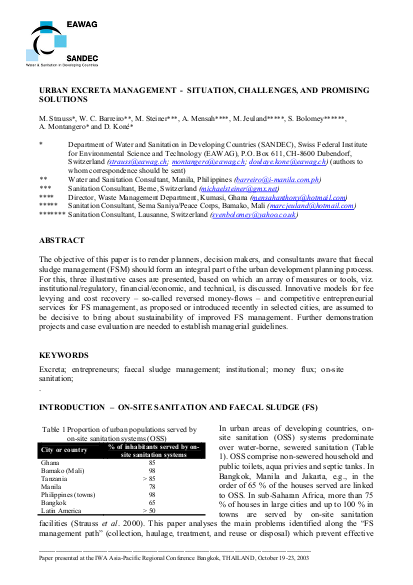
The objective of this paper is to render planners, decision makers, and consultants aware that faecal sludge management (FSM) should form an integral part of the urban development planning process. For this, three illustrative cases are presented, based on which an array of measures or tools, viz. institutional/regulatory, financial/economic, and technical, is discussed. Innovative models for fee levying and cost recovery – so-called reversed money-flows – and competitive entrepreneurial services for FS management, as proposed or introduced recently in selected cities, are assumed to be decisive to bring about sustainability of improved FS management. Further demonstration projects and case evaluation are needed to establish managerial guidelines.
Resource collections
- UN Habitat - Urban Response Collection
- Urban Response - Urban Crisis Preparedness and Risk Reduction
- Urban Response Collection - Community Engagement and Social Cohesion
- Urban Response Collection - Economic Recovery
- Urban Response Collection - Environment and Climate Change
- Urban Response Collection - Housing, Land and Property
- Urban Response Collection - Urban Crisis Response, Recovery and Reconstruction
- Urban Response Collection - Urban Resilience
